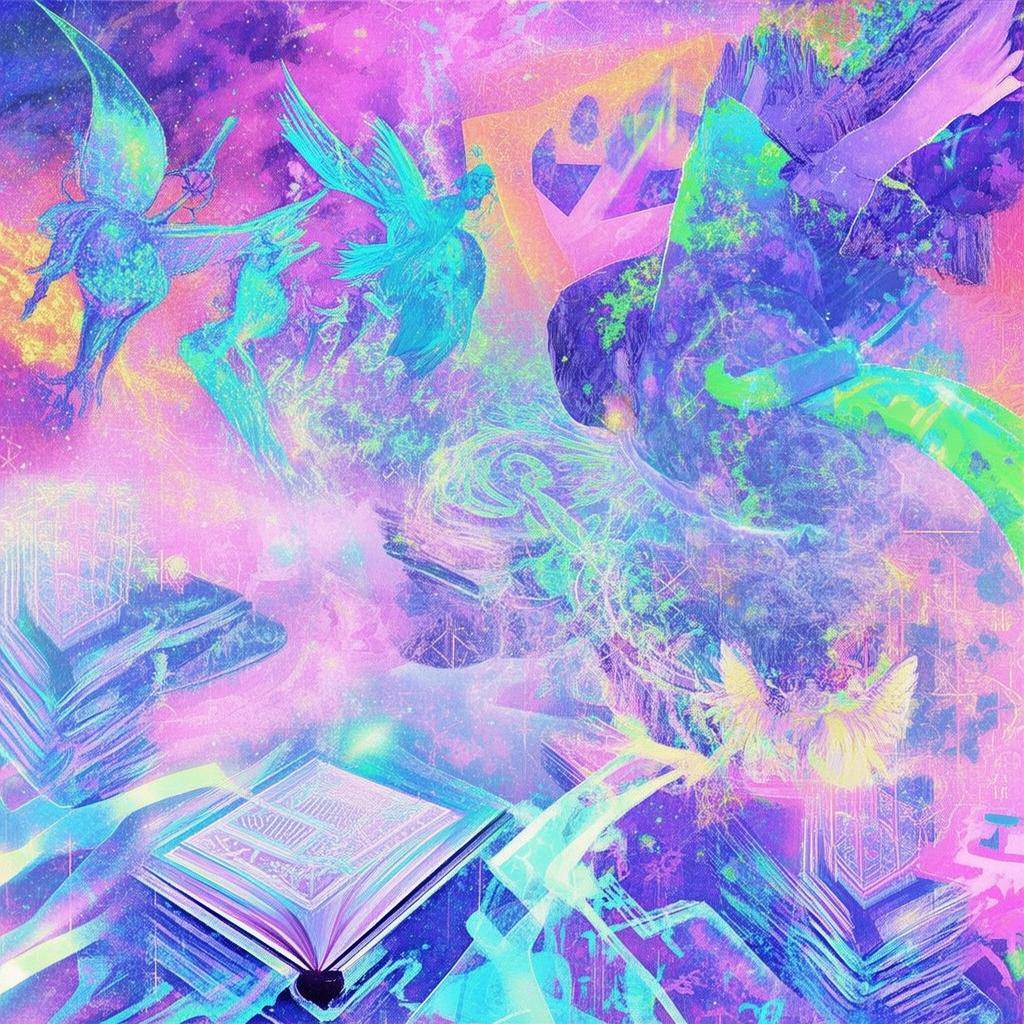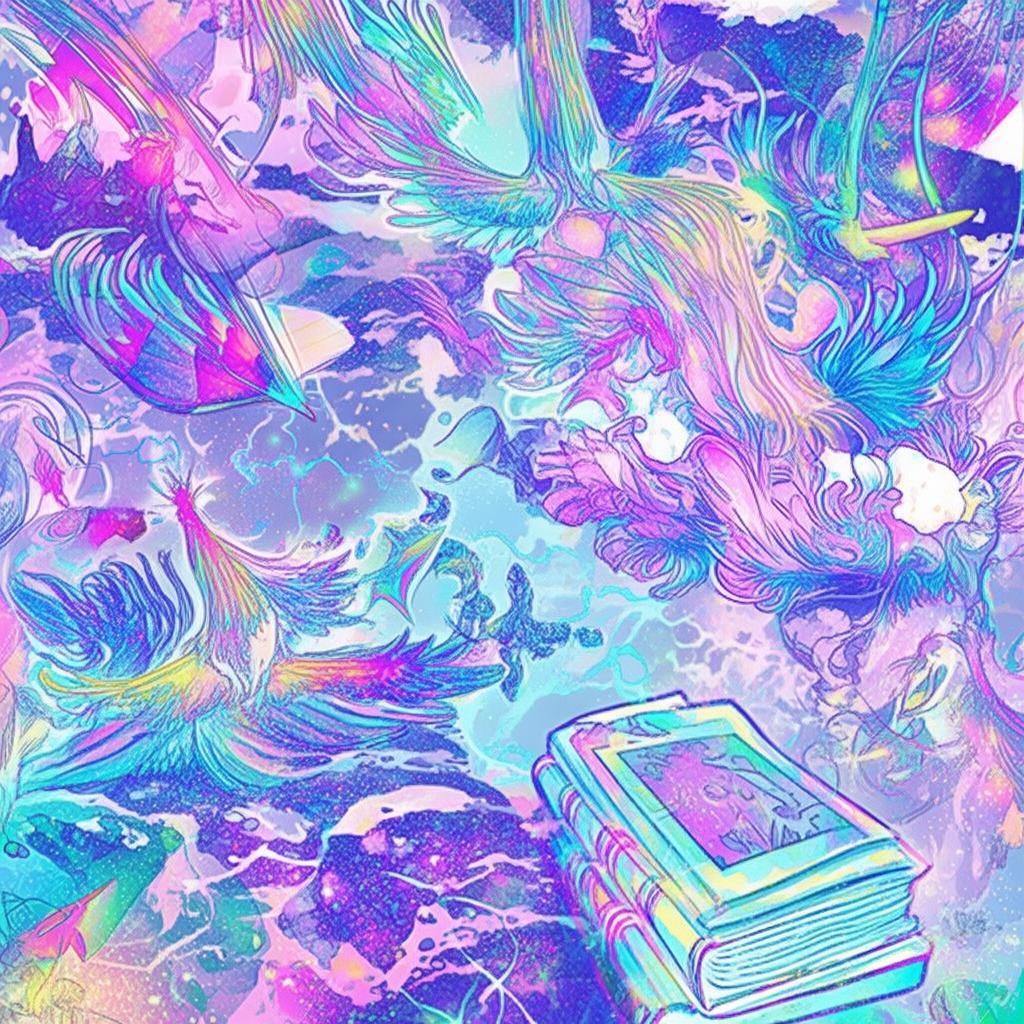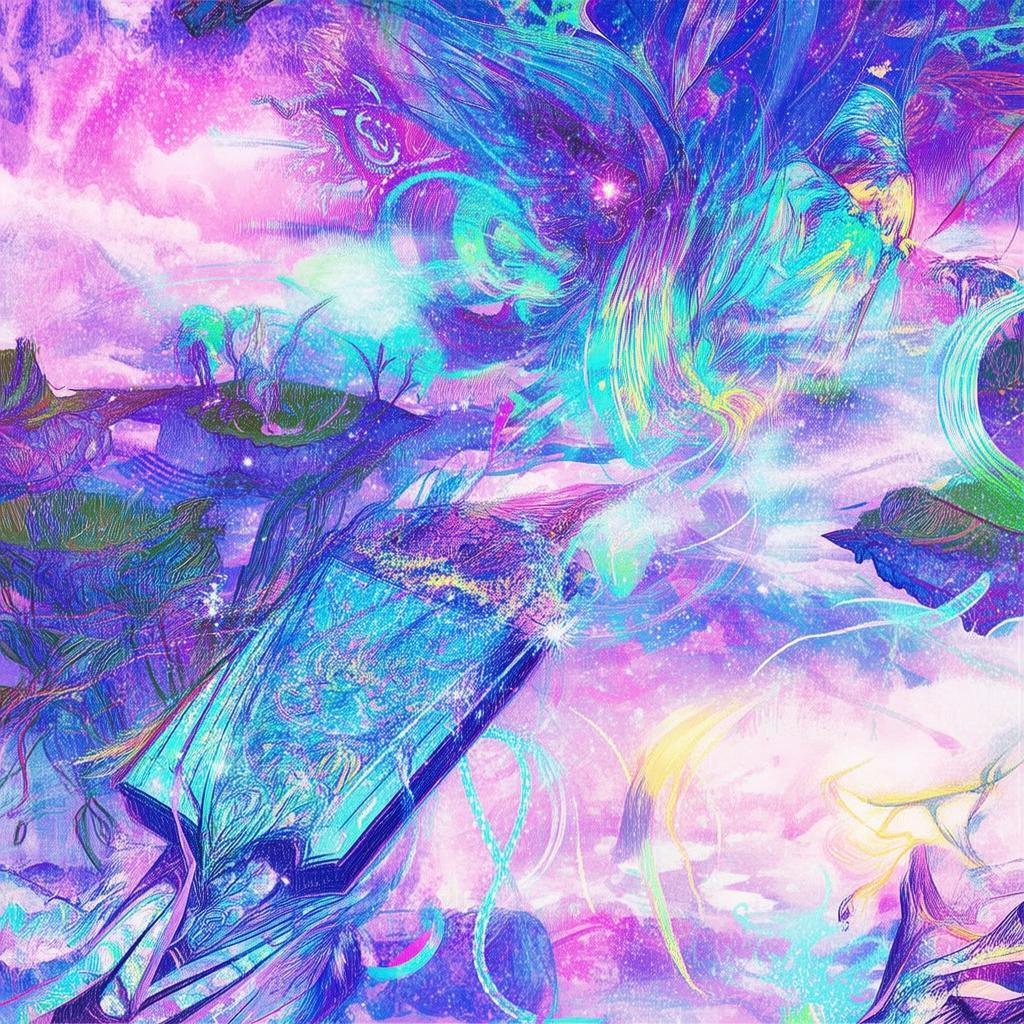The Time-Traveling Critic's Dilemma: A Review of the Renaissance
The year is 1500, and the bustling streets of Florence echo with the sounds of innovation and creativity. Sun Qian, the renowned time-traveling critic, is no stranger to the world of literature and art. Her reviews have shaped the course of history, influencing the fate of countless works. But this time, her journey through time has taken an unexpected turn.
As she steps out of the time portal, the scent of fresh paint and the clinking of metal tools greet her. She finds herself in the middle of the Renaissance, a time of unparalleled artistic and intellectual growth. The streets are alive with the chatter of artists, thinkers, and poets, each vying for the attention of the Medici family, the patrons of the arts.
Sun Qian's mission is clear: review the greatest works of the Renaissance. But this time, she's not just a critic; she's an active participant in the history she's come to review. Her first stop is the workshop of Leonardo da Vinci, where she's tasked with reviewing his masterpiece, "The Last Supper."
As she sits down to write her review, she's struck by the beauty and complexity of the painting. She marvels at the detail and the emotion portrayed in the faces of the apostles. But as she delves deeper, she realizes that her review is not just about the art itself; it's about the man behind it.
She questions Leonardo's methods, his motivations, and his genius. She wonders what it would be like to live in a time where creativity is not just valued, but worshipped. She finds herself caught in a web of historical significance and personal reflection.
Her next review takes her to the court of Catherine de' Medici, where she is to critique the political intrigue and the opulent lifestyle of the French queen. As she observes the court's machinations, she can't help but compare it to the political climate of her own time. She finds herself questioning the role of power and the nature of influence.
Her reviews become more personal as she continues her journey. She encounters Michelangelo, who challenges her to reconsider her own artistic abilities. She debates with Galileo, whose revolutionary ideas threaten to change the very fabric of human understanding. Each encounter pushes her to the edge of her comfort zone, forcing her to question her own beliefs and biases.
As her reviews gain popularity, she finds herself at the center of a controversy. Some believe her words have the power to influence history, while others fear her judgment might be biased. The weight of her role as a time-traveling critic becomes overwhelming, and she begins to doubt her own abilities.
In the midst of her struggle, Sun Qian encounters a mysterious figure who claims to be her future self. This figure warns her of the consequences of her actions, suggesting that her reviews could alter the course of history in ways she never imagined. Sun Qian is forced to confront the moral implications of her time-traveling endeavors.

As the days pass, Sun Qian's reviews become increasingly introspective. She reflects on her own life, her own art, and her own place in the world. She realizes that the true power of her reviews lies not in their ability to change history, but in their ability to change herself.
In a climactic moment, Sun Qian is faced with a choice: to continue reviewing and potentially alter the course of history, or to return to her own time and face the consequences of her actions. She chooses to stay, to learn from the past, and to grow as an artist and a human being.
Her final review is of her own life, a reflection on her time in the Renaissance and the lessons she has learned. She concludes that the true value of her reviews is not in their historical impact, but in the way they have shaped her own perspective.
As the time portal reappears, Sun Qian steps through, her heart filled with a newfound appreciation for the past and a deeper understanding of her own place in it. She returns to her own time, armed with the knowledge that the power of art and literature transcends time itself.
The Time-Traveling Critic's Dilemma: A Review of the Renaissance is a tale of self-discovery, the impact of art on history, and the timeless struggle between the critic and the creator. It is a story that will resonate with readers who value the power of words and the transformative power of time travel.
✨ Original Statement ✨
All articles published on this website (including but not limited to text, images, videos, and other content) are original or authorized for reposting and are protected by relevant laws. Without the explicit written permission of this website, no individual or organization may copy, modify, repost, or use the content for commercial purposes.
If you need to quote or cooperate, please contact this site for authorization. We reserve the right to pursue legal responsibility for any unauthorized use.
Hereby declared.









